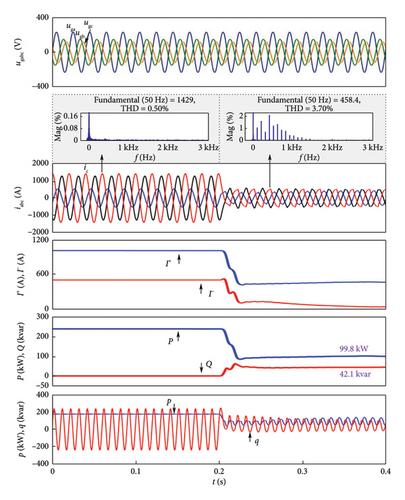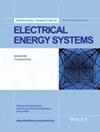Current-Limiting Strategy for Unbalanced Low-Voltage Ride Through of the SMSI-MG Based on Coordinated Control of the Generator Subunits
Abstract
Unlike the inverters in the traditional alternating-current (AC) microgrid, those in a microgrid with series microsource inverters (SMSI-MG) are connected to the power grid after being cascaded. The authors of this study first divide the control sections according to the degree of grid voltage dips and formulate a coordinated scheme to suppress fluctuations in the output powers of the SMSI-MG. For the section in which the degree of unbalanced grid voltage dips is relatively low, a current-limiting strategy that reduces the output power of the SMSI-MG through the coordinated control of the generator subunits (CCGU) is proposed. More active power can be provided by the SMSI-MG when the proposed strategy is used, than in the strategy that is based on changing the reference power, and the output reactive power of the SMSI-MG can be automatically changed with the degrees of dip and unbalance of the grid voltage. The Light Gradient-Boosting Machine (LightGBM) is used to establish a mapping relationship between the parameters characterizing overcurrent and the reduction quantity in output active power of the SMSI-MG to implement the CCGU-based current-limiting strategy. The complex collaborative control is simplified to improve the low-voltage ride through (LVRT) capability of the SMSI-MG.


 求助内容:
求助内容: 应助结果提醒方式:
应助结果提醒方式:


